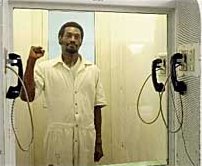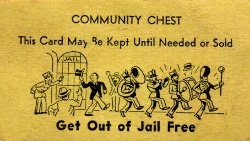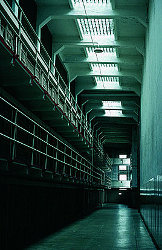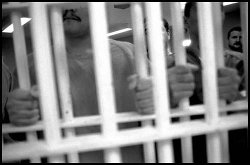


Forensic Information Center
What is Forensic Psychology?
Many definitions of forensic psychology exist, as does controversy over what qualifies as forensic psychology. In general, forensic psychology refers to the application of psychology in law arenas. More specifically, the American Board of Forensic Psychology defines the field as: Forensic Psychology is the application of the science and profession of psychology to questions and issues relating to law and the legal system. The word “forensic” comes from the Latin word “forensic,” meaning “of the forum,” where the law courts of ancient Rome were held. Today “forensic” refers to the application of scientific principles and practices to the adversary process where specially knowledgeable scientists play a role.
Knowing what defines forensic psychology is important, but perhaps knowing what forensic psychology is not is more critical. While the field continually grows, it remains relatively unknown among career choices, for with the unknown, false assumptions are always present. Many misleading statements can confuse students, patients, and those involved in criminal or civil cases. The following pages describe a few of the misconceived notions that forensic psychologists encounter when working within investigations, courts, and corrections arenas. Each of these fields provide a multitude of career opportunities for the forensic psychologist ranging from a consultant for police departments to evaluations of the correctional population.

Information regarding Letters of Recommendation for Students
FORENSIC PSYCHOLOGY COURSE
Clarifications & Misconceptions in Forensics
Investigations:
Forensic Psychologists can be involved in many different aspects of an investigation. One of the most overrated concepts of their work is criminal profiling. TV shows such as CSI, Criminal Minds, Profiler, and many others have made profiling the key component of forensics in general. Many college-bound students become caught in this misconception, choosing “profiling in the FBI” as a career path. They soon realize profiling constitutes only a minute fraction of the duties a forensic psychologists performs.
Many terms refer to “criminal profiling,” such as behavioral profiling, criminal investigative analysis, crime scene profiling, criminal personality profiling, offender profiling, and psychological profiling. Turvey defines criminal profiling as a “process of inferring the personality characteristics of individuals responsible for committing criminal acts” (p 1).
While profiling can be useful in pattern identifications, it cannot give a us the name of an offender. It can even narrow our focus to one type of offender when a broader spectrum better suits the situation. Another limitation of profiling is the lack of serious offenders. TV portrays an abundance of serial killers, when in reality serial killers only make up about 1% of the population. So while it exists as an interesting area of forensic psychology, criminal profiling simply is too limited an area for any specialist to base their career on.
Sources:Aside from criminal profiling psychologists are involved in an array of investigative processes. As a consultant they are asked to educate police departments on such issues as handling mentally ill persons, human relations, criminal psychology, and relationships with authority figures, among other topics (Wrightsman, 2001, 62). Psychologists in law enforcement are often seen as teachers in reference to training. On the other hand, psychologists offer more than just educational tools.
A psychologist can also offer counseling to police officers for traumatic events. Fitness-for-duty evaluations are conducted by psychologists in response to brutality allegations, police who have dealt with hostage situations, abuse cases, death of partner or other situations that challenge the emotional stability of officers. Fitness-for-duty assessments “should include at least one interview with the officer, a battery of psychological test, interview with supervisors, family members, and coworkers, and a review of any pat psychological and medical evaluations” (Wrightsman, 2001, 68). They should also be performed by a psychologist who does not regularly consult with that police department, so that the objectivity of the officer is not lost.
Courts:
One of the most commonly forgotten areas of forensic psychology is the civil arena. Due to popular media portrayal, much of the public believes forensic psychologists only delve into criminal courts. However, civil matters compose a large part of the average forensic psychologist’s workload. Civil cases may include issues such as emotional damage, involuntary treatment, child custody, guardianship, harassment & discrimination, civil competency evaluations, professional malpractice, product liability, and psychological autopsies. Each of these provides a job opportunity for the specialist.
Within the criminal court, the insanity plea is the most misunderstood. The public often relies on the assumption that those who plead insane are immediately released or placed in a mental facility. Multiple errors result from such assumptions. One of these is the simple definition of the insanity plea. The public often confuses this with defendant competency. Insanity refers to the incapability to understand right from wrong at the time of the offense; whereas, competency refers to the mental state of the defendant at the time of the judicial proceedings. While both deal with mental capabilities or lack there of, the key difference is the time of evaluation. A defendant can be deemed sane at the time of the offense, yet evaluated as incompetent to stand trial or make pertinent decisions; and vice versa.
Another misconception concerns the amount of insanity pleas sought by defendants. Many people believe that defendants who seek the insanity plea “get off easy.” In reality, few of those who plead guilty even go to trial; fewer still chance the insanity plea. Those that do attempt the plea are rarely set free, for in order to be considered insane, one must first admit guilt. Therefore, whether they are found sane or not, the jury or judge almost always selects a punishment that is anything but lenient. Often those deemed insane or incompetent are placed in psychiatric hospitals until they are competent to stand trial or are handed longer sentences than they would have received had they not pleaded insane.
Eyewitness testimony has become an increasingly involved area of expertise for the forensic psychologist. In contrast to media representation most cases lack real evidence and therefore have to rely on eyewitnesses. This became a noteworthy topic after DNA evidence first exonerated innocent individuals previously convicted of crimes they did not commit. It is unlawful to call into question the specific witness’s account, however, attorneys can use forensic psychologists to establish the accuracy or inaccuracy of eyewitness testimony in general. Gary Graham was sentenced to death based solely on the identification of one eye witness. Two other eye witnesses who say the killer was not Graham were never heard at trial.
Corrections:
Traditionally most forensic psychologists work within correctional facilities. These include juvenile centers, jails, prisons, and psychiatric hospitals. In general the public acknowledges that correctional facilities are a place to evaluate criminals for court procedures. Few recognize the other practices put forth in this system. While a number of evaluations are done, the bulk of forensic psychology focuses on treatment and research
Treatment in the realm of forensic psychology is still in its infancy. Disorders such as addiction, schizophrenia, bipolar disease and others have suitable treatments. There are still diseases that have no current management for example, the psychopath. While problematic for the offender, a lack of treatment hampers progress in public policy as well as policies for the institutions. Forensic psychologists’ work ranges from assessing the offenders potential recidivism to evaluating an offender’s need to move from a negative environment. These interactions provide continuous data to refine therapy.
Research often belongs to academic universities or hospitals. However a tremendous amount is collected from correctional and psychiatric facilities. Some of the most remarkable research on psychological issues is obtained from these facilities. Surprising results from Rice, Harris, and Cormier (1992), showed that while psychopaths appeared to be progressing in treatment, their recidivism rates when compared to a control group demonstrated otherwise. Psychopaths instead learned and mimicked what society wanted to hear, instead of internalizing the treatment. These studies shed light on the mental processes of the offenders which in turn provided better treatment.
Roles & Potential Careers in Forensic Psychology
Each area of the legal system offers a variety of specialization opportunities for forensic psychologists. While each role can become a career opportunity, many specialists consider a number of interests rather than focusing solely on one. For example, a forensic psychologists who specializes in family court can find themselves thrown into the criminal courts when one of their patients commits a criminal act.
- Consultation on a criminal profile.
- Expertise on risk assessment reports.
- Liaison between psychological and legal communities.
- Mental illness assessment.
- Prisoner classification.
- Consulting on rehabilitation programs, treatment and other programs offered in correctional facilities.
- Assessment of correctional staff members.
- Professor
- Lecturer
- Internship Provider
- Child Custody Evaluations
- Visitation Risk Assessments
- Grandparents Visitation Evaluations
- Mediation of parental Conflicts about Children
- Child Abuse Evaluations
- Adoption Readiness Evaluations
- Development of Family Reunification Plans
- Evaluations to Assess Termination of Parental Rights
- Personal Injury Evaluations
- Assessment of Emotional Factors in Sexual Harassment and Discrimination
- Worker’s Compensation Evaluations
- Civil Competency Evaluations
- Psychological Autopsies
- Evaluations of juveniles
- Evaluations of adult offenders
- Competency Evaluations
- Insanity Evaluations
- Consulting for either the defense or the prosecution
- Providing expert testimony
Many routes of training exist to obtain a career in forensic psychology. One popular undergraduate focus is the psychology major. Along with a psychology major, students can choose a crime and justice studies major or minor. Since forensic psychologists work in both arenas, students greatly benefit from a study of both. If students choose only a Psychology major, their electives should center around crime and justice studies.
While in graduate school, students can choose a variety of programs within psychology. These include clinical psychology, counseling psychology, social psychology, developmental psychology, criminal investigative psychology, and forensic psychology. Few university programs offer the latter; therefore, several other ways to acquire forensic certification exist. Students need to ensure their doctorate program has accreditation from the American Psychological Association (APA). Accreditation guarantees both consistency in expected training as well as respect.
There are many variations in establishing a career in Forensic Psychology. Once students have entered graduate school they can work towards a masters degree and then follow it with a doctoral degree. Or students can also choose a fast track doctoral program. However, if students choose to enter directly into the doctoral program it is highly suggested that they choose a program that credits them their masters degree once they have surpassed the required hours. This not only allows students the licensing they need to obtain jobs and practicum experience but it also provides a backup to students incase they are unable to finish their Ph. D. or choose a different specialization. The average time spent in these programs varies from 5 to 7 years, not including time spent on residency.
Students can also obtain a Juris Doctor (J.D.), otherwise known as a law degree in addition to a Masters or Doctoral degree. Forensic Psychology attempts to fill the gap between psychology and law arenas therefore it is just as critical for students to know different aspects of law and court regulations.
Click here for a list of schools that offer the combination of degrees needed for this career.
While the pathways vary, a few particular requirements for becoming a forensic psychologists remain consistent. The first requirement is graduation from an APA accredited doctoral program. Those who specialized in programs other than forensic psychology can acquire post-doctoral fellowship training in forensic psychology.
Follow this link for a list of forensics career training programs.
After obtaining appropriate certification, aspiring psychologists should apply for state certification, which normally requires an examination of some sort. Field work also remains a necessary evil that must be experienced before one becomes board certified. The required amount is one year, however, more is always welcome. The American Board of Forensic Psychology, the recommended certification board, not only holds great respect among the psychology community, but also provides the opportunity for forensic psychologists to be titled as diplomats.




